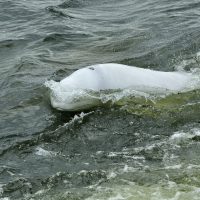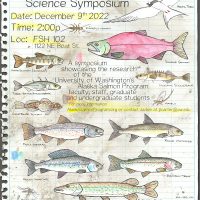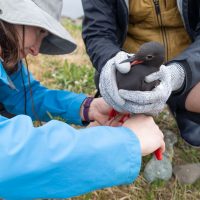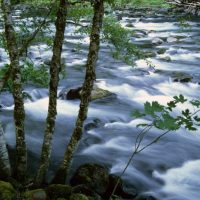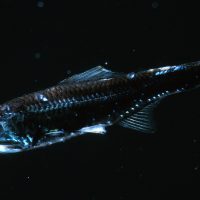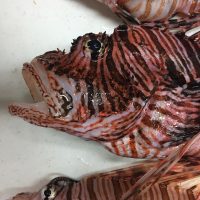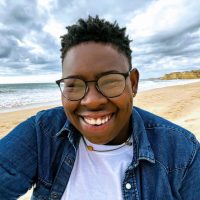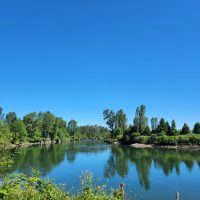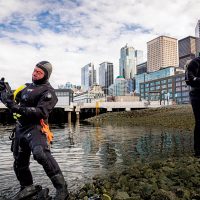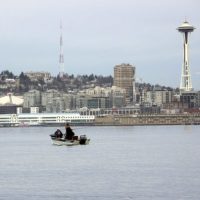Filter Results
Population declines in Alaska beluga whales may be linked to low birth and survival rates
The beluga whale population in Alaska’s Cook Inlet, which connects Anchorage to the North Pacific Ocean, is listed as endangered and has declined by over 75% from about 1,300 whales in the late 1970’s to fewer than 300 today.
Understanding whether the decline is due to low birth or low survival rates, or a combination of the two, can give scientists clues about the external threats that are impacting the population.
Speakers announced for the 2022 Alaska Salmon Program Annual Science Symposium
Taking place on Friday 9 December at 2pm, the agenda for the 2022 Alaska Salmon Program Annual Science Symposium has been announced. The event will be held in FSH 102, in the Fishery Sciences Building.
This symposium showcases the research of the UW School of Aquatic and Fishery Sciences’ Alaska Salmon Program undergraduate and graduate students, faculty, staff and visiting scientists.
Read moreSAFS Spotlight with Sarah Converse
With its unique position spanning marine and freshwater environments, the School of Aquatic and Fisheries Science (SAFS) attracts researchers, scientists, scholars and students from a wide sea of disciplines.
The first in a new series of SAFS Spotlight, we spoke with Sarah Converse, Associate Professor at SAFS and Unit Leader of the U.S. Geological Survey, Washington Cooperative Fish and Wildlife Research Unit.
Fish, Forests and Fungi
SAFS graduate student Anne Polyakov spent a summer with the UW Alaska Salmon Program studying ecosystems along three salmon streams, hoping to use the data collected to track how nutrients flow into all parts of the system — into the soil, plants and the role that fungi play in this intricate process.
Read moreStudy Reveals How Ancient Fish Colonized the Deep Sea
The deep sea contains more than 90% of the water in our oceans, but only about a third of all fish species. Scientists have long thought the explanation for this was intuitive — shallow ocean waters are warm and full of resources, making them a prime location for new species to evolve and thrive. But a new University of Washington study led by Elizabeth Miller reports that throughout Earth’s ancient history, there were several periods of time when many fish actually favored the cold, dark, barren waters of the deep sea.
Read moreWhat lies beneath?
In a new documentary, Ocean Invaders, on NOVA PBS, join researchers from the UW School of Aquatic and Fishery Sciences (SAFS) as they uncover the hidden secrets of one of the world’s most invasive species: the lionfish.
Wreaking havoc on ocean reefs, one of the most popular ways of lionfish population control is spear fishing. However, lionfish have started to venture beyond the depth by which it’s possible to spear fish, presenting a new challenge.
UW Graduate Student Selected as 2022–2023 WSG Keystone Fellow
Washington Sea Grant announces that Ashley Townes, who is completing her doctorate in fisheries ecology at SAFS, has been selected as the 2022–2023 WSG Keystone Fellow.
Read moreA river of research
From the Pacific Northwest and Alaska to further afield, rivers are one of the aquatic environments where UW School of Aquatic and Fisheries Science (SAFS) researchers are actively working to ensure a healthy, sustainable ecosystem for the future.
On World Rivers Day – an international celebration and awareness day for the world’s waterways – we are highlighting some of the extensive research underway at SAFS and through partnerships with different institutions.
Seattle’s waterfront is getting a major makeover — with a little help from the UW
Along the seawall, which was designed with the help of UW scientists and engineers and serves as the foundation for the city’s new waterfront, the researchers count herring, shiner perch, sand lance, a growing host of invertebrates and, most importantly, salmon. All kinds of salmon.
This is just one place where the UW’s expertise touches on Seattle’s new central waterfront project, an $835 million public-private effort to reconnect the city’s downtown with Puget Sound.
An 85-year-old fishing club’s records reveal the secrets of Puget Sound salmon
Few people would consider launching a boat into Seattle’s Elliott Bay on a winter morning. It’s cold, dark, and more often than not, wet. But the steadfast members of Seattle’s Tengu Club, a Japanese American fishing club that held its first annual salmon derby in 1946, can reliably be found doing just that.
When he first read about the Tengu Derby in the Seattle Times over a decade ago, UW School of Aquatic and Fishery Sciences (SAFS) Professor Thomas Quinn’s interest was piqued.
